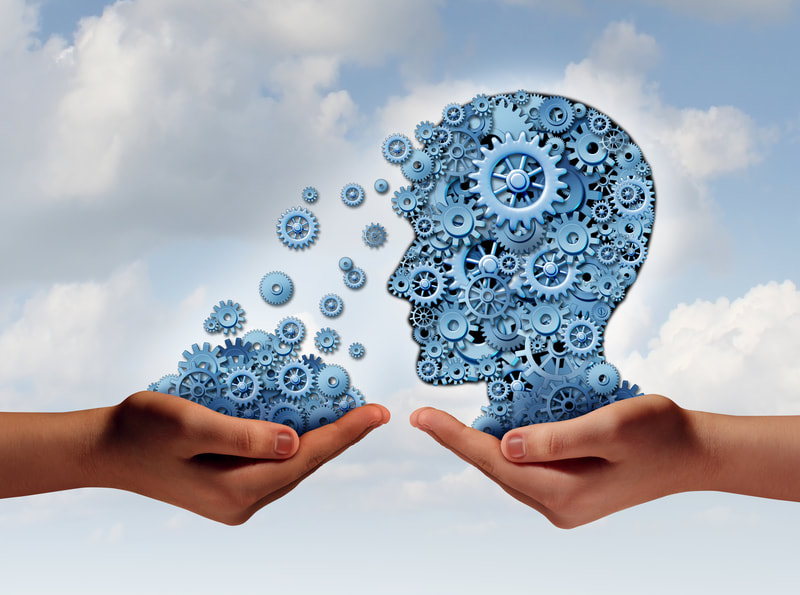Neuro–science is now advanced enough to be able to measure brain activity that is involved in our senses and memory. We now know, that awareness and consciousness are brain functions which slowly materialized in our early years when our brain developed. We all experienced that process and our first memories established our sense of “self”, our identity as a person. We can even locate the parts of the brain responsible for storing these memories and this knowledge is rapidly advancing. (2)
Dementia is a terrible curse. There are many different forms of dementia, and therefor the symptoms can be different. I want to discuss only one type, called Alzheimer’s disease, that can so far, only be diagnosed definitely by autopsy of the brain after death. (3). My mother and my grandmother suffered this fate. My mother, who was a very patient and loving person as well as very religious, went through all the stages mentioned in the literature and ended up as a vegetable. It was heartbreaking and very difficult to accept. What did we observe was that her awareness and self-identity slowly became more and more impaired as the brain deteriorated and her memories were slowly destroyed.
There are other forms of dementia were we cannot be sure whether it is destruction of the brain cells our impairment of access to memory is the cause but in Alzheimer’s, because of autopsies, we can establish that as a fact.
The only conclusion based on the scientific method of fact and observation of Alzheimer’s patients is, that although we do not know yet how the brain produces awareness and consciousness, they are totally depended on the material brain and that when the brain dies there is no awareness and memory possible, that we know as a fact, therefor an afterlife is a moot point.
Epilogue: There is no need to argue whether there is an intelligent designer, perhaps there is, although I doubt it. One can call energy or nature a “god”, it doesn’t change the above conclusion. The great need to overcome the avoidance of reality of death has spurred many ancient and current philosophers, to conjure up some method of avoiding death’s finality by invoking a supernatural realm where everything is possible. Some will argue that we posses a non-material soul or spirit, that is independent from our material brain. This is a pure speculative idea which developed from the historical fact that “breath” was considered a spirit that entered the baby when it took it’s first breath and the last breath, when dying, would leave the body to re-join the Great Spirit. The word “spirit” is actually derived from the Latin “spiritus”, meaning “breath”. One can find many mentions of breath being a spirit in other religions. The Bible has at least 8 references (see “origin of the spirit” on my website) to that effect.
Another speculation is, that your memories, which you need to be aware of yourself, could somehow be transferred to a supernatural medium or in the future to a mechanical device. Imagine that after transferring your total memory to such a device you discover that the machine, when becoming aware, absolutely believes it is you, but you know that can’t be the case. A duplicate cannot be “you”. There are many other problems with the idea of an afterlife in heaven, such as when babies die, do they grow up in heaven? What about mentally retarded people?
There are many supposition. None of them having evidence. They are philosophical constructions or pure fantasy. Notions such as “we are part of a supernatural universal awareness, were our consciousness came from and will return to” or the suggestions that quantum physics somehow indicates that we are part of a universal consciousness, by people who misunderstand or misrepresent the underlying physical processes, are wishful thinking. Extra ordinary claims need extraordinary evidence.
References:
1-(Schulz, Hartmut (2008). "Rethinking sleep analysis. Comment on the AASM Manual for the Scoring of Sleep and Associated Events". J Clin Sleep Med. American Academy of Sleep Medicine.
2-Consciousness and the brain, by Stanislaw Dehaene, Viking Press)
3-Ballard C, Gauthier S, Corbett A, Brayne C, Aarsland D, Jones E (March 2011). "Alzheimer's disease". Lancet.


 RSS Feed
RSS Feed